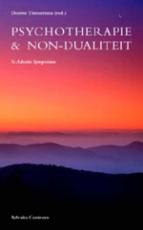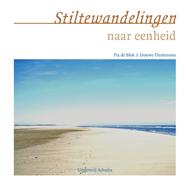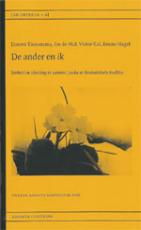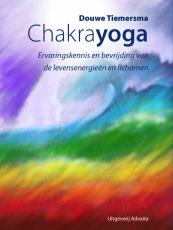Advaita Post 09 - 12 - And when you have lived a thousand lives...

Year No. 9 12 (August 18 2008)
--- And when you have lived a thousand lives, at a certain point you say: it is enough ---
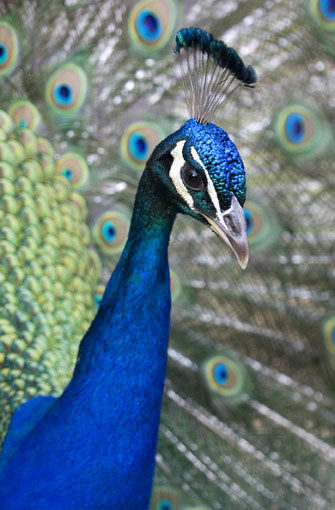
As eye you are everywhere
#3: The ego
An introduction and talk in Gouda May 14, 2008
With every experience, what you experience always comes towards you and you always come together with it. With people, with things. But you hold yourself back, from everything and everyone. Ask yourself and see: what holds me back? One full experience without an ego cramp and it is one for all. Still there is the 'I' that is always blocking things. It resists the externals and thus resists the unfolding of the experience. Why? Because the ego knows that it will disappear when the experience unfolds until subject and object merge. So an "I" wears not only all kinds of glasses to restrict and deform experience, but also contains within itself the basic resistance for allowing experience to go all the way until it is fully unfolded. Actually the "I" is very pathetic. It wants everything. It wants great pleasure and will do anything to get it. Then this, then that, then that ... but it also holds itself back from pure enjoyment. It's clear then from this restriction that the enjoyment of all sorts of beautiful things does not lead to liberation.
It's the ego that desires happiness and that happiness is never allowed to arrive, because that means the end of the ego.
You see, that is the basic conflict of the ego.
But what about desire? It's not just from the ego?
No, because desire goes beyond the ego. But that is exactly the problem of the ego, that it can't come along.
But the ego still desires, for enlightenment for example.
Let's say that that's the self, which has an understanding of its own nature, namely total openness.
But the ego can never allow total openness.
No, that's why you get that conflict.
The ego just wants to be an enlightened ego.
It thinks: of course, I would like to be enlightened, but without losing myself. Thinking that such could be possible is a mistake, an illusion, which causes a lot of suffering.
The ego cannot free itself?
No, so the breaking open will come from something else, from something outside. What is that other? That is yourself as long as you aren't stuck in the ego. It's very simple.
The ego has a focus, but not beyond the ego.
As you sit looking out from the ego's stance, you can discover all kinds of lines which point beyond the boundaries of the ego. In order to look further you must dare to look and the ego doesn't dare. These are very simple things that I'm pointing to but which are for most people, in their own experience, still so difficult to see, for example, "do you experience that in your (sensory) body you have no borders?" Why is the experience of infinity not accepted? Because the "I" doesn't want to accept it.
But isn't that the problem of everyone? Also for the people who are here?
For all those who are still stuck somewhere in an ego, yes. It's good to recognize that.
Surely the ego is good for something?
Oh yes. If the ego finds it nice to write a check for a good cause ... then it's good for something, yes.
The practical side then ...
The ego is primarily always good for itself. The ego is by definition first good for itself and if that also means that it's good for someone else, it's included. You see it, whenever there is a conflict of interest with someone else, the ego chooses for itself.
What is it really, the ego?
It is the self-being that thinks: I am this person.
But the thought still occurs within consciousness?
Yes, if you experience yourself as consciousness. But then the situation is different.
But is there still no ego?
To the extent that it does appear, it is a phantom.
It doesn't really exist then?
No, of course not. See for yourself.
Yet there it is.
Yes, from your stance as ego that is the greatest truth. That's why you always choose for the ego. It's self evident. So first of all you must see that clearly. You must also dare to see: that's how the egoist works.
I heard someone say: I can choose between being happy and being right.
When an alternative becomes clear, then there is another point of view. And from out of the viewpoint of open space there is also the possibility of releasing your own limitations.
I experience then that everything changes.
Yes, but see that the source lies at a different level than that of the ego. It's on a different level of self-being, where there's much more understanding, where the choice becomes possible. For an "I" it's just not possible, because an "I" normally continues on a directly egocentric way. Thus, just recognizing the self-being with a more spacious insight is in itself a bit of enlightenment.
But you have just talked about enlightenment.
That is a very difficult word, but you can define it if you are not stuck on the specifics.
But you described the enlightened state as something that one has an experience of.
No, it is a recognition from a clearer consciousness.
And that is the experience?
You can no longer call it an experience. The word "experience" we use mostly for a person, on a psychological level. But on the level of insight, there is clarity of consciousness and it shows itself as it is. It is directly known.
The thoughts about enlightenment - should you release them?
Of course, because that is again an idea of a certain label from the thoughts of a person.
So by letting go the ego gives up the fight. And then?
Then, the self-being that can recognize it, that remains.
But this is totally inconceivable, the ego can't let go but then you are still waiting for some kind of breakthrough?
You don't need to do that. Just recognize, for as long as it's necessary.
So continually recognize it, ever anew.
Again and again, as long as it's necessary.
And when is it no longer necessary?
When the natural state remains stable. When the old mechanisms of making separations, trying to manipulate others, holding tight or just wanting to have, until all the mechanisms just don't function any longer. Then the openness is.
So then the environment doesn't matter as much any more?
No, because there is no longer an inside and outside, so there is not an environment anymore. When you enjoy a fantastic landscape, there is one thing: landscape/enjoyment. Then you don't say: that environment is there and that environment doesn't do so much for my happiness any more. You don't say it any more, because it is rendered from a separation of an "I" that wants to keep everything at a distance. And you see, that is then endless. When the circumstances change, for example, when you are back at home, you will want that beautiful experience once again. If you recognize this endless cycle, the movement of limited self-being that binds itself to conditions, then you see the major problems it creates. For its whole life the "I" rushes after itself. And if you've lived a thousand lives, at a certain point you say: it is enough.
Er is geen tweeheid
als je ontspannen bent
in zelf-bewustzijn
is dat duidelijk.
Boeken
Douwe schreef en redigeerde gedurende zijn leven boeken. Via onze uitgeverij zijn deze nog verkrijgbaar.
